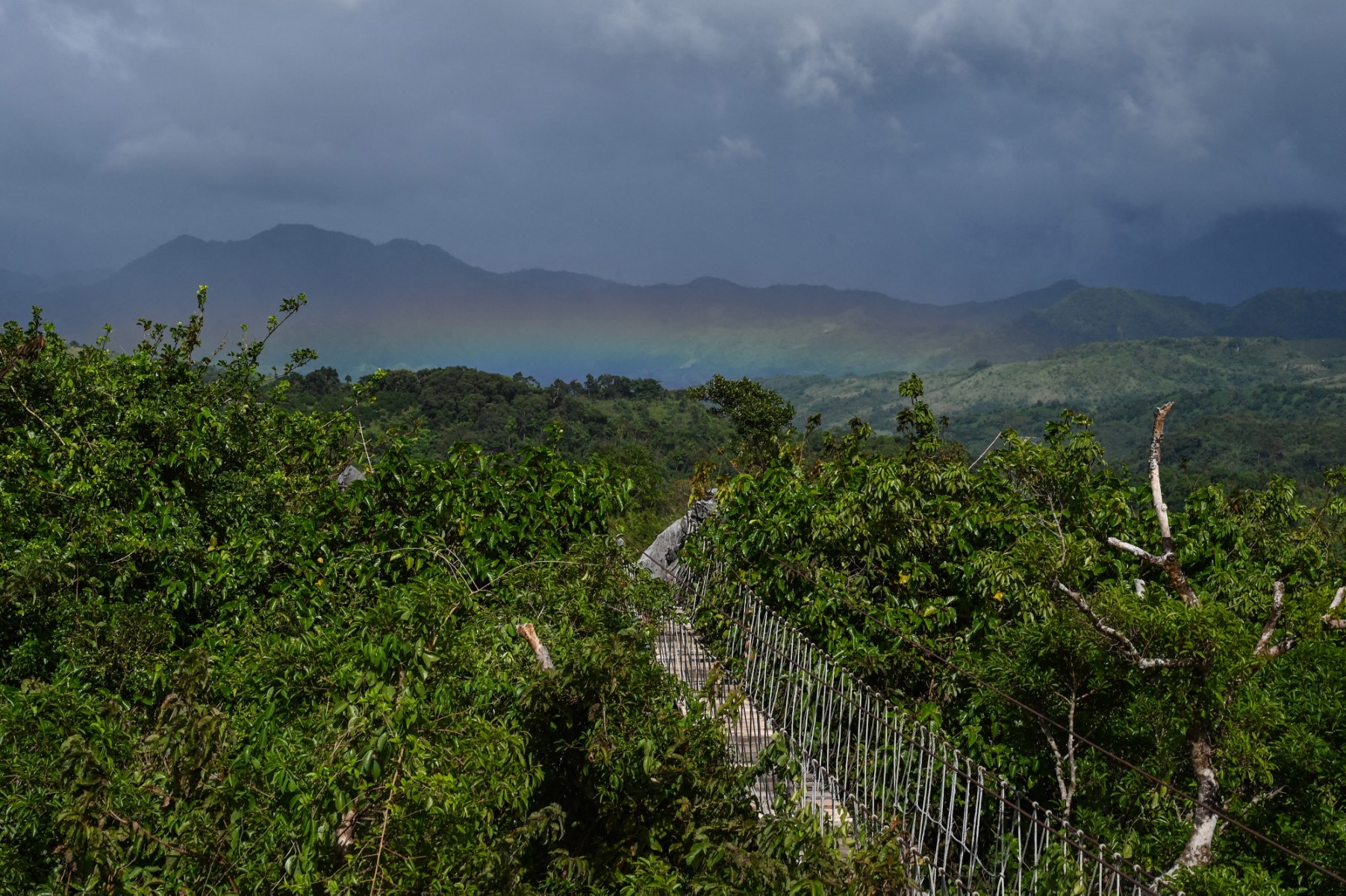Over 30 organizations demanded on Tuesday that the Philippine government “revoke any permit issued for the wind farm project” that encroaches on the Masungi Conservation Area.
The groups also urged the project proponents – Rizal Wind Energy Corporation and Singapore-based Vena Energy – “to relocate the project to less ecologically sensitive sites.”
In February, the Masungi Georeserve Foundation Incorporated (MGFI) revealed that its team had recorded, via drone surveillance in November 2023, the construction process for 12 wind turbines.
In a petition letter submitted to the Department of Environment and Natural Resources, the groups said their opposition “stems not from a resistance to renewable energy” but “a thoughtful consideration of the balance between progress and preservation, a balance we find dangerously compromised by the proposed project.”
Signatories in the petition include the World Wildlife Fund (WWF) Philippines, Wild Bird Club of the Philippines, Greenpeace Philippines, Ashoka Philippines, ABS-CBN Foundation, Living Laudato Si’ Philippines (LLS), and the Center for Environmental Concerns (CEC).
Kristine Joice Leray of CEC said the transition to renewable energy “should not further put the environment and local communities at a greater risk.”
The Philippine Misereor Partnership Inc. expressed support for the call to protect the Masungi Georeserve. “Respect for natural processes is paramount if we want a life that is truly sustainable,” said Yolanda Esguerra, national coordinator of the group.
Alyssa Darunday of Kalikasan People’s Network for the Environment said, “Aside from the potentially massive impacts on the local ecosystem, the wind farm project will also invariably affect nearby communities, including indigenous communities and communities in Metro Manila.”
The Masungi Georeserve is a conservation area situated in the southern Sierra Madre range in Baras, Rizal, 47 kilometers east of Manila.
In 1977, it was designated a national park, wildlife sanctuary, and game preserve, and is now protected under the Expanded National Integrated Protected Areas System (E-NIPAS) law.
This legislation mandates that the management of protected areas adheres to the principles of biological diversity and sustainable development.
It strictly forbids commercial activities within these areas without proper clearance and permits from the Department of Environment and Natural Resources (DENR) and the Protected Area Management Board (PAMB).







